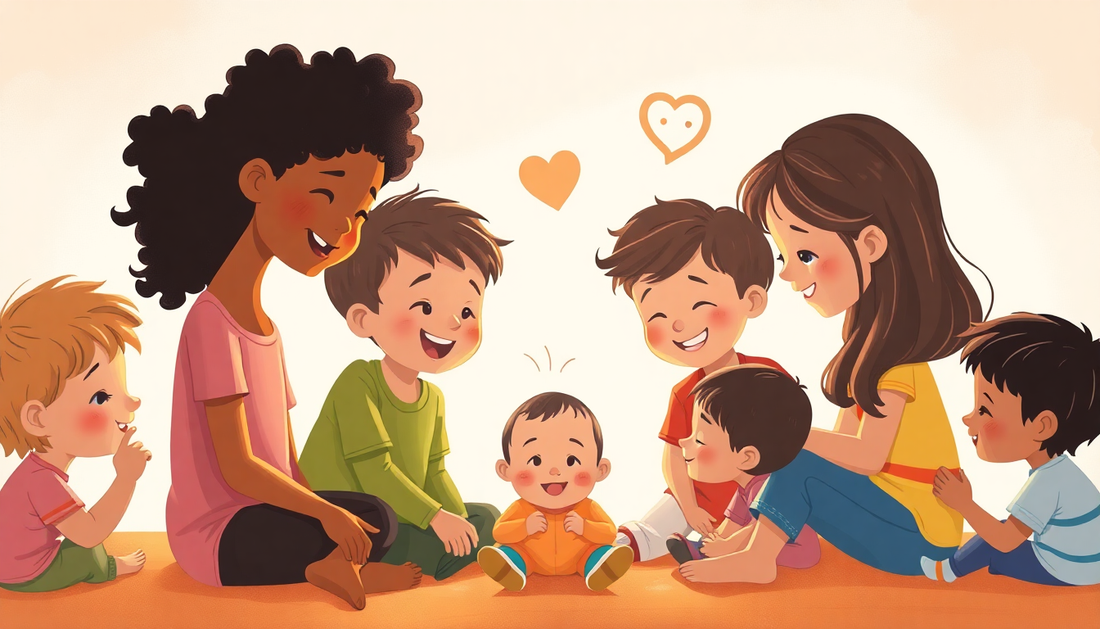
The Profound Impact of Play on Children's Emotional Development
Share
Play is not just a recreational activity for children - it is a fundamental aspect of their emotional and social development. As parents and caregivers, we often underestimate the profound impact that play can have on a child's emotional intelligence and overall well-being. In this blog post, we will explore the intricate connection between play and emotional growth, and uncover the key benefits that play can offer for a child's emotional development.
Understanding Play and Emotional Growth
Play, in the context of child psychology, is defined as any activity that is intrinsically motivated, freely chosen, and engaging. It is a natural and instinctive way for children to explore their world, express their emotions, and learn essential life skills. When children engage in play, they are not only having fun, but they are also actively developing their emotional intelligence.
Emotional intelligence, or EQ, refers to the ability to recognize, understand, manage, and reason with emotions. It is a critical component of a child's overall development, as it directly impacts their social relationships, decision-making, and overall mental health. By engaging in play, children have the opportunity to practice and hone their emotional skills, laying the foundation for a lifetime of emotional resilience and well-being.
Key Benefits of Play for Emotional Development
- Stress Reduction: Play is a natural stress-reliever for children. Through engaging in imaginative games, physical activities, and social interactions, children can release pent-up emotions and find healthy ways to cope with stress and anxiety.
- Social Skill Enhancement: Cooperative play, such as group games and role-playing, allows children to develop essential social skills like empathy, communication, and conflict resolution. These skills are crucial for building healthy relationships and navigating the emotional complexities of social interactions.
- Emotional Regulation: Play provides a safe and supportive environment for children to explore and express their emotions. Whether it's through dramatic play or sensory experiences, children can learn to identify, understand, and manage their feelings in a constructive manner.
- Self-Expression and Communication: Play offers children a platform to express themselves and communicate their thoughts and feelings in a non-verbal, creative way. This can be particularly beneficial for children who may struggle with verbal communication or have difficulty expressing their emotions.
Types of Play that Support Emotional Intelligence
To maximize the emotional benefits of play, it's important to encourage a diverse range of play experiences for children. Some of the most impactful types of play include:
- Imaginative Play: Engaging in pretend play, such as role-playing or creating imaginary scenarios, allows children to explore and process their emotions in a safe and controlled environment.
- Cooperative Games: Participating in group games and activities that require collaboration, communication, and problem-solving can help children develop empathy, conflict resolution skills, and a sense of emotional connection with their peers.
- Sensory Play: Engaging the senses through activities like finger painting, sand play, or water exploration can help children regulate their emotions and develop a deeper understanding of their own feelings and experiences.
- Physical Play: Engaging in physical activities, such as running, jumping, or dancing, can help children release pent-up emotions, improve their mood, and develop a stronger sense of self-awareness and emotional control.
Practical Strategies for Parents
As parents and caregivers, we can play a crucial role in supporting our children's emotional development through play. Here are some practical strategies to consider:
- Encourage Diverse Play Experiences: Provide a variety of play opportunities that cater to different interests and learning styles, allowing children to explore and express their emotions in a multitude of ways.
- Create Supportive Play Environments: Establish safe, nurturing, and stimulating play spaces that encourage children to feel comfortable expressing their emotions and engaging in meaningful play.
- Recognize Emotional Cues During Play: Observe your child's play and be attuned to their emotional cues, such as facial expressions, body language, and tone of voice. Use these cues to help them identify and articulate their feelings.
- Facilitate Emotional Learning Through Play: Engage with your child during play and use it as an opportunity to discuss emotions, model emotional regulation strategies, and help them develop a deeper understanding of their own and others' feelings.
Potential Long-term Impacts
The benefits of play for a child's emotional development extend far beyond the immediate present. By nurturing emotional intelligence through play, we are setting our children up for long-term success in various aspects of their lives. Some of the potential long-term impacts include:
- Emotional Resilience: Children who have developed strong emotional skills through play are better equipped to navigate the challenges and stressors they may face throughout their lives, fostering a greater sense of emotional resilience.
- Improved Social Relationships: The social and communication skills gained through play can translate to healthier, more fulfilling relationships with peers, family members, and other important figures in a child's life.
- Enhanced Mental Health Outcomes: By supporting emotional development through play, we can help children build a strong foundation for positive mental health, potentially reducing the risk of issues like anxiety, depression, and behavioral problems in the future.
Conclusion
Play is not just a fun activity for children - it is a vital component of their emotional development and overall well-being. By understanding the profound impact that play can have on a child's emotional intelligence, we can empower parents and caregivers to prioritize and nurture this essential aspect of child development. Through diverse play experiences, supportive environments, and intentional emotional learning, we can help children cultivate the emotional skills they need to thrive, both in the present and for years to come.
